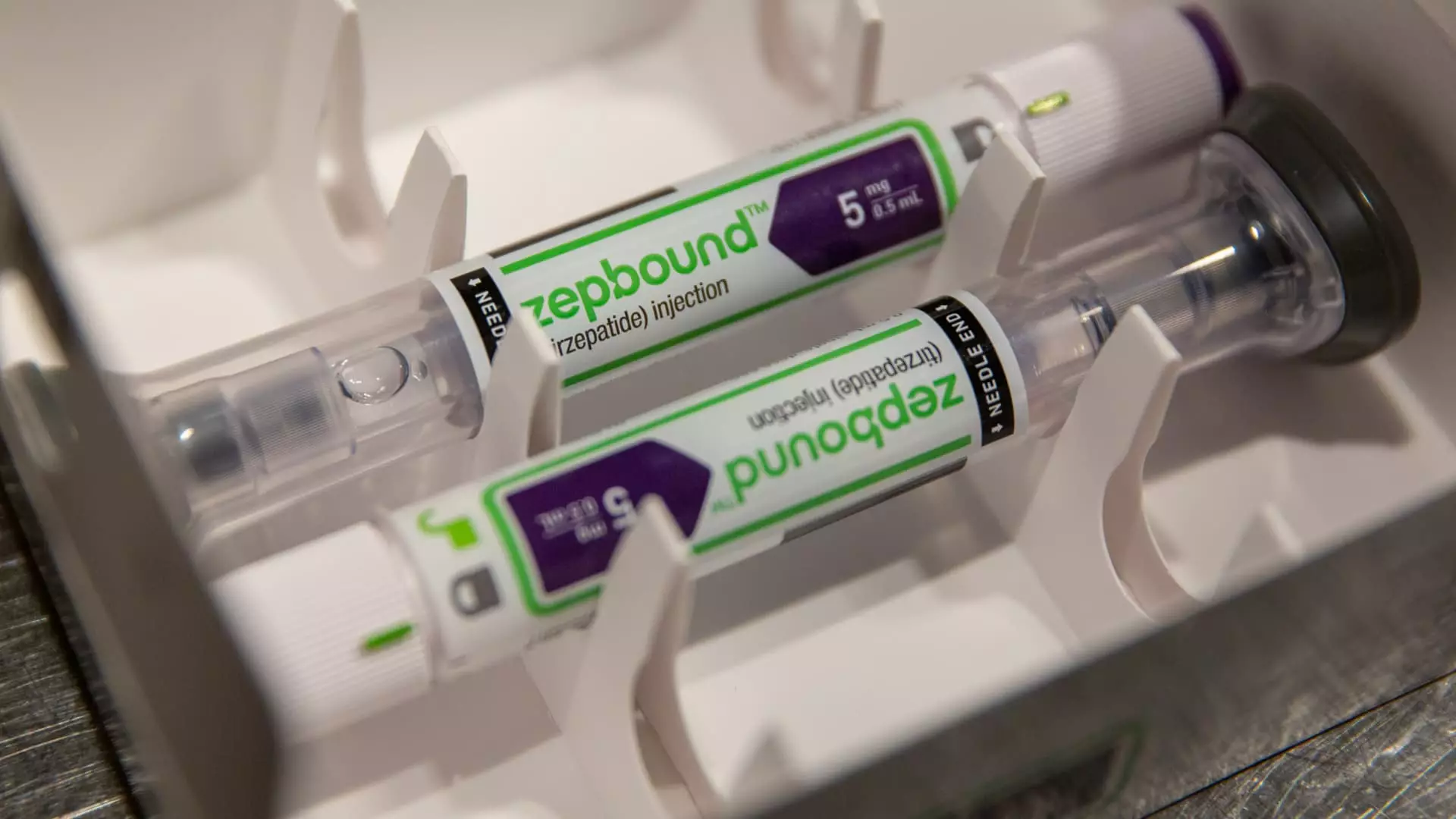In a recent late-stage trial, Eli Lilly’s weight loss drug Zepbound has shown promising benefits in patients with heart failure and obesity. This new data adds to the growing body of evidence suggesting that GLP-1 drugs like Zepbound may have health benefits beyond weight loss and blood sugar regulation. These findings could potentially lead to broader insurance coverage for these types of treatments.
Patients who participated in the trial and took Zepbound were found to be 38% less likely to be hospitalized or die due to heart-related complications. They were also less likely to require an increase in heart failure medication when compared to those who received a placebo. Furthermore, Zepbound significantly improved symptoms of heart failure and physical limitations in these patients.
The trial followed more than 700 patients with heart failure and obesity for a median of two years. These patients had heart failure with preserved ejection fraction (HFpEF), a condition where the heart cannot pump enough blood to meet the body’s needs. HFpEF is associated with a high burden of symptoms that impact a patient’s daily life, including fatigue, shortness of breath, and reduced exercise capacity.
According to the Centers for Disease Control and Prevention, approximately 6.7 million adults aged 20 and above in the U.S. have heart failure. Eli Lilly estimates that HFpEF accounts for nearly half of all heart failure cases, with almost 60% of affected patients also having obesity. This highlights the importance of finding effective treatments for this specific population.
The safety data on Zepbound was consistent with previous trials of the drug. The most common side effects reported were gastrointestinal, such as nausea and diarrhea, and were generally mild to moderate in severity. Eli Lilly plans to present this data at an upcoming medical meeting and submit it to a peer-reviewed journal for further evaluation.
Eli Lilly’s main rival in the GLP-1 market, Novo Nordisk, has also been making strides in treating patients with heart failure. Novo Nordisk recently submitted an application for the use of its weight loss drug Wegovy in treating patients with HFpEF. Additionally, the Food and Drug Administration approved Wegovy in March for reducing the risk of serious heart complications. Both companies are also researching their drugs in patients with chronic kidney disease and fatty liver disease.
GLP-1 drugs, including Zepbound and Wegovy, work by mimicking hormones produced in the gut to suppress appetite and regulate blood sugar. Zepbound targets both the GLP-1 and GIP hormone receptors, while Wegovy targets only GLP-1. This dual targeting mechanism may provide additional benefits in patients with heart failure and obesity, as seen in the recent trial results.
The findings from Eli Lilly’s trial of Zepbound in heart failure patients with obesity are promising and suggest a potential new treatment option for this population. Further research and regulatory approvals are needed to fully understand the benefits and risks of this drug in real-world clinical settings.

